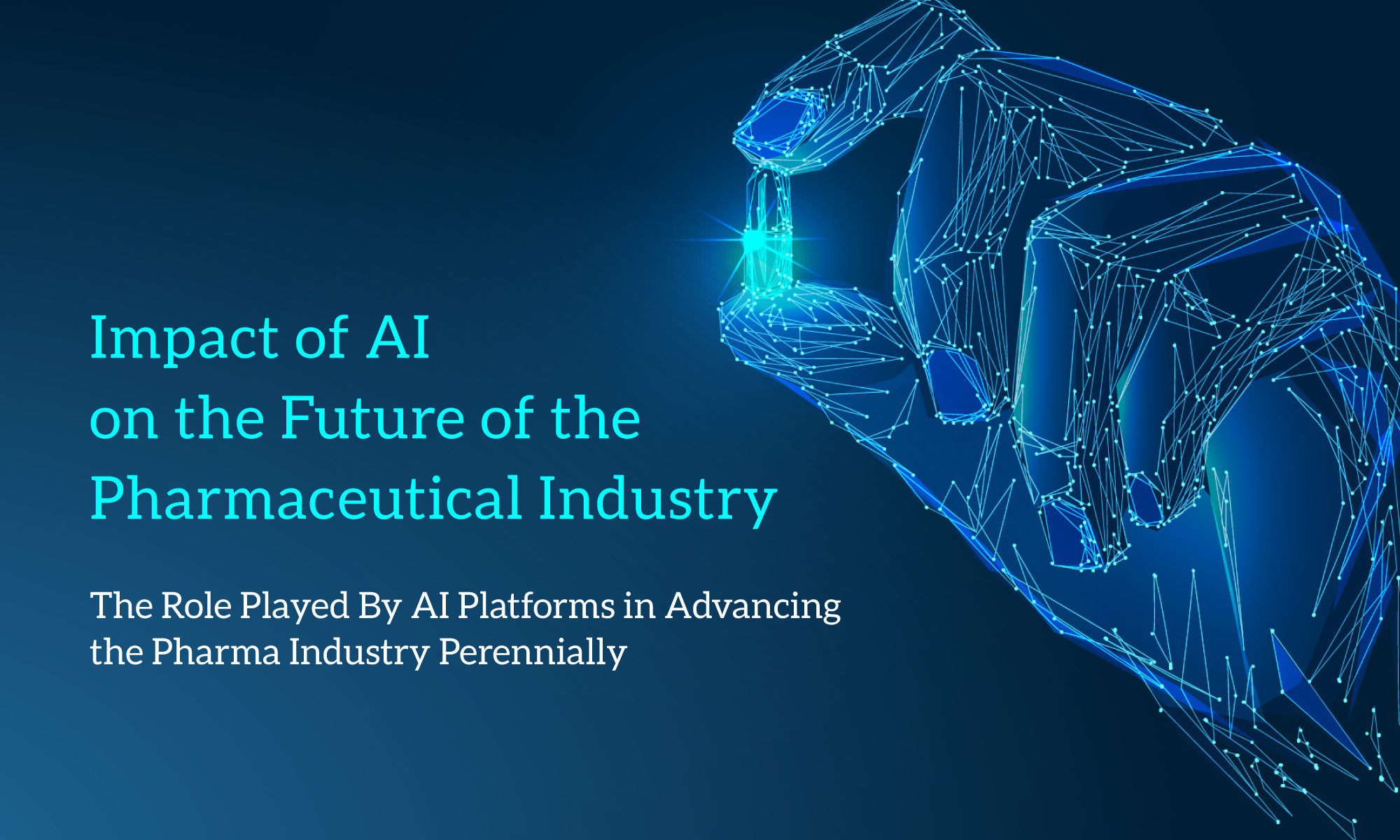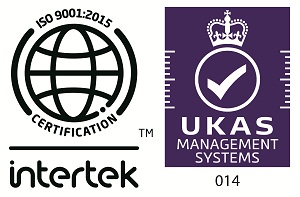“No matter how you perceive it, AI will certainly change every aspect of our lives.”
In today’s technologically advancing world, it’s nearly impossible to talk about any industry’s future without mentioning Artificial Intelligence (AI). Be it cybersecurity, manufacturing, or retail; AI will significantly impact every industry.
The Pharmaceutical Industry is no exception.
The pharma industry is responsible for discovering, developing, producing, and marketing drugs or pharma drugs as medications. These drugs get administered to patients to vaccinate and cure them or alleviate the symptoms.
Artificial intelligence in Pharma uses automated algorithms to perform tasks that traditionally rely on human intelligence. Since the last decade, AI’s introduction in the pharma industry has modernized scientists’ thinking in developing new drugs, tackling diseases, and more.
Let’s take a deep-dive into how AI is currently and will be shaping the pharma industry in the future:
Drug Discovery & Trialling
Artificial Intelligence is known for its ability to enhance R&D. Cloud-based AI platforms are already getting developed by major pharma companies. These platforms excel in finding patterns in large datasets and in using algorithms that produce accurate predictions in discovering new drug molecules to target-based drug validation and discoveries.
AI can significantly reduce the time taken to conduct a drug trial and get approval, meaning that the drug can get launched into the market as soon as possible, resulting in cost savings and ensuring that new innovative medicines reach patients faster.
Modern Genomics
Genomics is the biological field focused on the structure, evolution, function, mapping, and editing of genomes (an organism’s complete set of DNA, including all its genes).
The field of genomics is known for producing large datasets that help discover and develop potential new therapeutics. Artificial intelligence is highly valuable in genomics as it accelerates the time it takes to generate insights from information.
AI-based platforms can help map the genes responsible for causing certain diseases and then further map the drug molecules that can target and effectively cure them.
At present, AI platforms are getting used for discovering the drug molecules for treating specific neurological diseases.
Drug Repurposing
Drug Repurposing is the strategy of identifying new uses for an already existing approved drug. It reduces the time and overall cost massively.
AI platforms are a significant boon for drug repurposing. These platforms can evaluate the available data of drug molecules to match new targets.
In the future, AI, in combination with Machine Learning (ML), can help to repurpose drug molecules for curing rare diseases such as the current COVID-19 pandemic.
Personalized Medicine
The feature that makes humans so unique is that we are all built differently and respond differently to circumstances. All are not similar concerning their physical structure, genetic makeup, rate of metabolism, etc.
Therefore, based on an individual’s requirement, the therapy or dose must get personalized.
Artificial Intelligence can go a long way in providing the required framework to stratify patients, implement specifically tailored treatment and in doing so, increase the response rates, and reduce the medical errors and adverse effects.
Diagnosis
AI and ML go hand in hand. Across the globe, doctors can use advanced ML systems to collect, process, and analyze large volumes of patients’ healthcare data. Healthcare providers worldwide use ML to store sensitive patient data securely in the cloud or a centralized storage system. This data is known as electronic medical records (EMRs).
AI and ML go hand in hand. Across the globe, doctors can use advanced ML systems to collect, process, and analyze large volumes of patients’ healthcare data. Healthcare providers worldwide use ML to store sensitive patient data securely in the cloud or a centralized storage system. This data is known as electronic medical records (EMRs).
Since massive amounts of data get analyzed quickly, the entire diagnosis process gets faster and more accurate than ever before.
Quality Drug Product Development
Artificial Neural Network (ANN) and Design of Experiment (DoE) are two major self-learning AI platforms that help understand the inter-parameter interactions. Further, they support composition and process optimization, which helps develop a high-quality drug product, based on an understanding of the cause-effect relationship between process parameters and quality target product profile.
Clinical Monitoring
Specific ailments like Parkinson’s disease require clinical monitoring. Artificial Intelligence can enable doctors to monitor their patients remotely, adjust their drug dose regularly, and fix appointments.
Furthermore, AI can effectively monitor a patient’s movement via a smartphone camera and determines the severity of the symptoms.
In case the conditions become worse, the AI sends an alert to the doctor and arrange a check-up. Remote setups like these help eliminate the need to travel back and forth to the doctor’s clinic, saving the patient’s hassle of traveling and waiting in long lines.
Predicting Epidemics
AI and ML are already getting utilized by significant pharma and healthcare providers to forecast and monitor epidemic outbreaks across the globe. These technologies work on the data gathered from various sources, study the connection of diverse geological, geographical, environmental, and biological factors, and connect the dots between these factors and previous epidemic outbreaks.
Such AI/ML models will be significantly useful for underdeveloped economies that lack the financial framework and medical infrastructure to deal with an epidemic outbreak.
Improving the Manufacturing Process
Artificial Intelligence can present several opportunities to improve or enhance the pharma industry’s existing production and manufacturing processes. These manufacturing opportunities include:
- Reduced design time
- Quality control
- Reduction of Waste
- Improvement of production reuse
- Predictive maintenance
The prime benefit of AI is that it makes the entire process automated and removes the possibility of any human intervention, thus eliminating any room for human error.
Marketing
The pharmaceutical industry is a sales-driven sector whose success is dependent on the number of sales. These sales fluctuate on the marketing strategies used by the business. AI can refine existing marketing styles and techniques.
With the implementation of AI, a pharma company can map out the typical customer journey, which will enable the company to identify the marketing technique that ultimately persuaded the customer to make a purchase. Obtaining this information is crucial to ensuring long-term success and only to promote a profitable business. The marketing strategies that are working can get continued, and those not working can get discarded immediately.
In Conclusion, AI operates as a machine learning system, continuously analyzing and responding to data, enabling researchers to gather information effectively. As a result, the more data AI responds to, the smarter it will become, advancing the pharmaceutical industry perennially.
If you plan to develop an AI-based platform for your pharmaceutical company or startup but are not technically specialized, look no further than 6DegreesIT. Our professional and highly-skilled developers have years of experience using all the modern technologies, be it Artificial Intelligence or Machine Learning, and create the most secure and reliable product for you.




